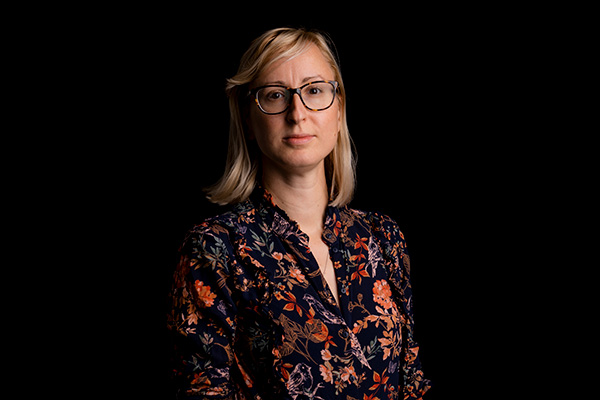Dora Kampis
Research leader

Project title
The role of infants' emerging self-perspective in memory development
What is your project about?
My project investigates the emerging understanding of self-other perspective and its role in memory development. What enables young children to remember details from their lives, such as where they know something from? I propose that the developing understanding that oneself and others can have different thoughts and perspectives, helps infants appreciate that events are remembered differently by those who experienced them - including themselves. The project will explore infants’ interactions with others, how they begin to track people’s different perspectives, and become aware of their own. We will link these domains to the ability to form memories of one-time, unrepeatable episodes, with their specific details. By studying children from infancy to toddlerhood this project will give a unique insight into how the understanding of 'self and others' relates developmentally to episodic remembering.
How did you become interested in your particular field of research?
I was always fascinated by development as it allows us to identify the building blocks of our cognition. Humans are an extremely social species, and from early on in my studies I was drawn to tackling the mechanisms that allow our sociality to emerge and function so well, and how this affects young babies’ learning and perception of the world. How does babies’ perception of others change with development, from early infancy when they are passive observers of others, to toddlerhood and beyond, when they are active agents in their interactions, yet still have so much to learn? These questions, I believe, have crossed the mind of everyone who has observed a baby with wonder; and I feel lucky that in my work I have the honour to investigate this scientifically.
What are the scientific challenges and perspectives in your project?
As adults, most of us have the experience of remembering unique, one-time episodes from our lives, and the ability to recall from where we know something. But it has long been a challenge to study this in young babies, to identify how and why these emerge in development. The starting point of my project is the notion that humans are highly social beings, and that this sociality contributes to the emergence of remembering details of what happened, or from where or who we know something. Thus, the unique perspective this project brings is to combine the domains of social cognition and memory development to uncover how these are linked in development. Additionally, by studying children at multiple ages and in a variety of scenarios will allow us to identify the factors that play a role in the individual pathways of how remembering sources of our knowledge emerge.
What is your estimate of the impact, which your project may have to society in the long term?
What we remember from our lives, and how we think about ourselves and others, affect virtually all aspects of our lives and are fundamental to human thinking. Remembering specific events from our lives has a gradual development from infancy to childhood and can be selectively impaired in some individuals. If as my project proposes, the development of memory is linked to babies’ increasing understanding of their own perspective, and related to interactions with others around them, this has implications for all these domains. Gaining insight into how these develop within the individual, and what may shape their development, has relevance for how we think about human memory and social cognition. Advancing our understanding of these processes has widespread implications from approaches to the early years of a child’s development to informing clinical applications.
Which impact do you expect the Sapere Aude programme will have on your career as a researcher?
I am thrilled to have received this grant which will help establish my own line of research and form my research group at the University of Copenhagen. This step will allow me to mentor the next generation of scientists, gain further experience in teaching, set the ground for further expanding my research program, and thereby strengthen research on early social-cognitive development in Denmark. Being in this cohort of emerging scientists who have received the Sapere Aude grant will also present a great opportunity to connect with others at similar career stages, and I look forward to being part of this community.
Background and personal life
I was born in Hungary and have often lived abroad both in my childhood and adult life. I enjoy international environments, and my family and friends are spread around Europe and all over the world, so there is someone to look forward to everywhere! Besides English I speak German, Hungarian, a little Spanish – and working on my Danish :) Outside work I like to spend time in the mountains, near lakes, or at sea, play the piano, nurture my plants, or enjoy an exhibition. Dogs and llamas always make me happy.
View all research leaders here
Research institution
Copenhagen University
Research field
Cognitive Development
City of your current residence
Copenhagen
High school
Budapest, Hungary
